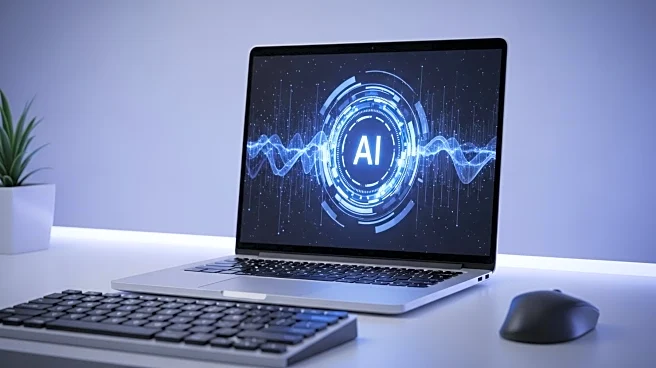What's Happening?
Recent computer science graduates are encountering difficulties in securing employment, as AI technologies increasingly automate coding and software development tasks. Despite the tech industry's growth, job openings have become more competitive, with employment for recent graduates in computer science and math declining by 8% since 2022. The rise of AI tools, such as Microsoft's Copilot, is enabling companies to reduce their reliance on human workers for entry-level roles. This trend is compounded by tech companies undergoing layoffs and restructuring, further limiting job opportunities for new graduates.
Why It's Important?
The challenges faced by computer science graduates highlight the disruptive impact of AI on traditional career paths. As AI continues to automate tasks, entry-level positions in tech may become less accessible, potentially affecting the career prospects of new graduates. This shift could have broader implications for the U.S. economy, as the tech sector plays a crucial role in driving innovation and growth. Educational institutions and policymakers may need to adapt their strategies to ensure graduates are equipped with skills that align with the evolving job market.
What's Next?
Educational institutions may need to revise their curricula to incorporate AI-related skills and prepare students for the changing job landscape. Companies might explore new hiring models that balance AI integration with human expertise. Policymakers could consider initiatives to support workforce transitions and ensure equitable access to employment opportunities. The ongoing evolution of the tech industry suggests that stakeholders will need to remain agile in responding to these changes.








